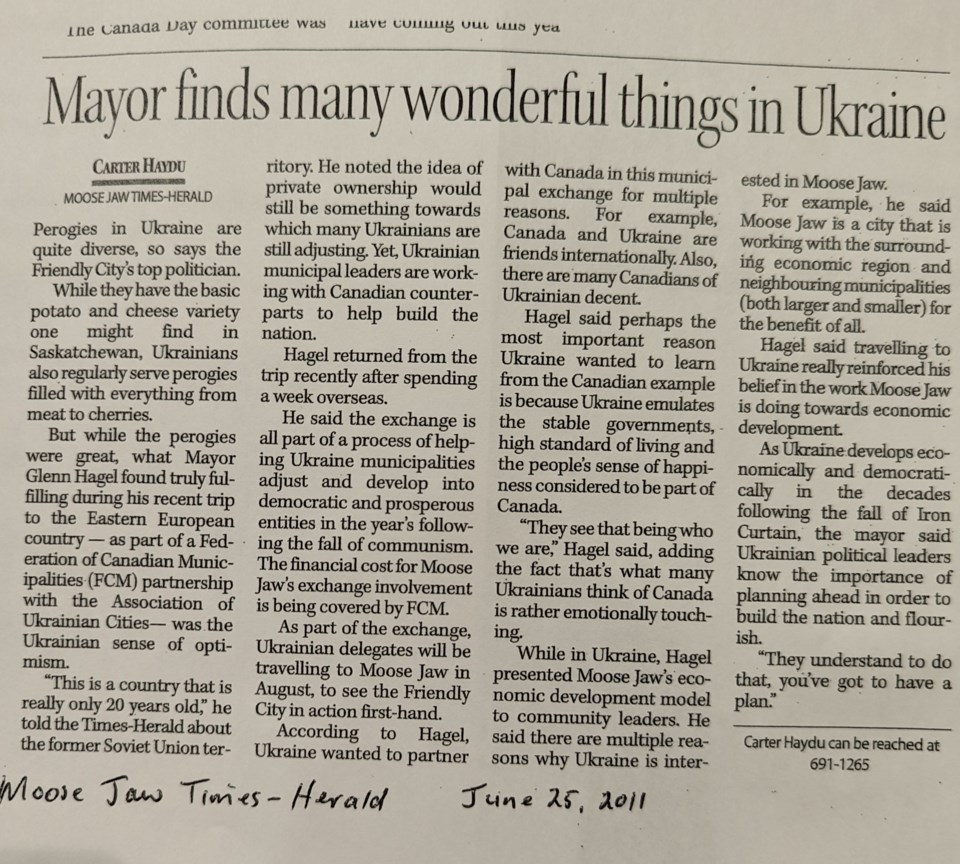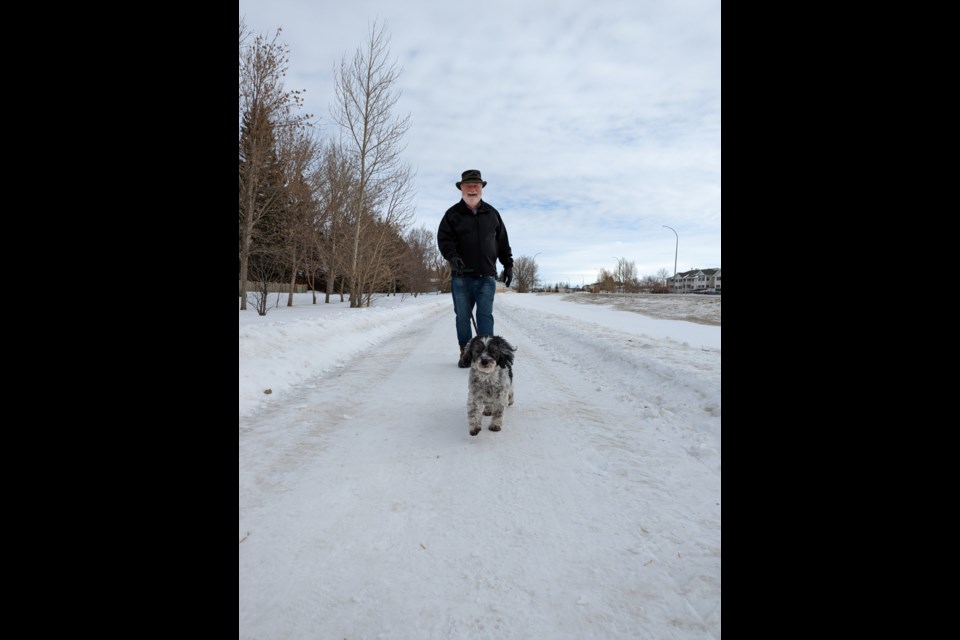Former Moose Jaw mayor Glenn Hagel travelled to Ukraine in 2011 with fellow municipal politician Barry Gunther as part of an agreement between Ukrainian and Canadian cities to help foster economic prosperity and democracy.
The Federation of Canadian Municipalities (FCM) implemented a long-term partnership with the Association of Ukrainian Cities (AUC). As part of the program, Global Affairs Canada funded an exchange program between the two countries. The partnership was influenced by the number of Ukrainian immigrants who had come to Canada’s agricultural western provinces to settle.
“There were 12 Ukrainian cities that were selected, and 12 Canadian cities that were selected, and we were one of them,” Hagel explained. “It led to exchanges both ways. From Canada to Ukraine to offer our experiences from different cities of different sizes.”
Hagel said that while the delegations included elected officials, most people who travelled to Ukraine were top administrative officials who could break down the actual nuts and bolts of organizing democratic structures.
“This is a country that in 2011 was only really 20 years old,” he said. “Still disadvantaged in so many ways by the administrative structures put in place by communist governments.”
Hagel served in the provincial government for over 20 years as a Moose Jaw MLA. During that time, his roles included three years as Speaker of the Legislative Assembly and subsequent cabinet roles as minister of social services; community resources and employment; culture, youth, and recreation; and more.
Barry Gunther was a prominent member of the Saskatchewan Urban Municipalities Association (SUMA) at the time. He had an influential role in the Moose Jaw-Regina industrial corridor and valuable experience to offer in municipal economics.
Ukraine became a sovereign nation in 1991 with the breakup of the Soviet Union. They have slowly been increasing their independence and degree of democracy ever since.
The FCM/AUC partnership answered questions such as how individual cities could unite to present concerns to regional- and national-level governments; what kind of taxes to levy, and how to use that money; or how to structure laws to protect individual ownership of property.

Hagel said that while he was there, he had the chance to ask the President of the AUC why they had decided to form their partnership with Canada in particular. The president’s response was that “When you’re just starting out, and you’re looking for ideas, it makes sense to ask the ones who do it the best.”
We live in a democracy where people are safe, and comfortable, and optimistic about their futures, Hagel said. And we have an obligation to share that, he added.
Which is why the war in Ukraine matters, Hagel continued. “It is a country that is still new to democracy, and they are working hard to make it work, and they are making progress. And that annoys autocratic leaders (like Putin).”
Hagel believes Canadians should be personally offended by the war in Ukraine because it represents an attack on democracy worldwide.
As a Rotarian, Hagel hopes next week’s Ukrainian Supper Fundraiser on Friday, April 29 gives Moose Javians the chance to contribute to help Ukrainian refugees in Poland.
The fundraiser is a joint effort by both Moose Jaw Rotary Clubs.
Take-out tickets for the event are sold out, but there are still a few dine-in spots left.
The meal will be at 5:30 p.m. at the Church of Our Lady hall at 566 Vaughan Street. Tickets can be purchased from Sasktix.ca or at the Mosaic Place box office.




